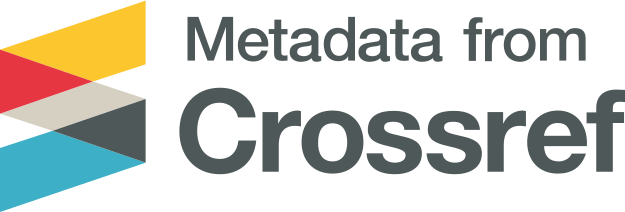Determinan Nilai Perusahaan Publik di Indonesia dan Filipina dengan Kepemilikan Institusional sebagai Pemoderasi
DOI:
https://doi.org/10.35838/jrap.2019.006.01.5Keywords:
price to book valueAbstract
ABSTRACT
Firm value is one the management's standard in managing the business. This study aims to scrutinize about determination value of enterprise public in indonesia and the philippines to the ownership of institutional as a moderator. Sample used in this research was the company into an LQ45 index in Indonesia and an PSEi30 index in the Philippines. Technique analysis the data used was structural equation modelling-partial least square (SEM-PLS) using warppls 6.0. It is also done analysis multigroup to see if there is a difference in the influence of profitability, the solvability and the size of the company on the companies in Indonesia and the Philippines. The results of testing shows that its satisfactory profitability as to depend on the value of enterprise in Indonesia and the Philippines. The solvability has not been affecting the value of enterprise in Indonesia and the Philippines. For variables the size of the company, or is the size of the striking result. It is to depend on the value of enterprise in the Philippines, while in Indonesia do not affect the size of the company. Following the completion of variable moderation or testing by adding the results showed that in Indonesia, institutional ownership capable of moderating influence on the perceived value of the company profitability, while in the Philippines ownership of moderating the influence of institutional capable of reducing the size of the company on the perceived value of the company. The results of the analysis multigroup show there is a difference of determination value of enterprise in Indonesia and the Philippines to the ownership of institutional as an moderation variable.
ABSTRAK
Studi ini bertujuan untuk meneliti mengenai determinasi nilai perusahaan publik di Indonesia dan Filipina dengan kepemilikan institusional sebagai pemoderasi. Sampel yang digunakan dalam penelitian ini adalah perusahaan yang masuk ke dalam indeks LQ45 di Indonesia dan indeks PSEi30 di Filipina. Teknik analisis data yang digunakan adalah Structural Equation Modelling-partial Least Square (SEM-PLS) dengan menggunakan program WarpPLS 6.0. analisis multigrup untuk mengetahui apakah ada perbedaan pengaruh profitabilitas, solvabilitas dan ukuran perusahaan terhadap nilai perusahaan di Indonesia dan Filipina. Hasil pengujian menunjukkan bahwa profitabilitas berpengaruh terhadap nilai perusahaan di Indonesia dan Filipina. Solvabilitas tidak berpengaruh terhadap nilai perusahaan di Indonesia dan Filipina. Untuk variabel ukuran perusahaan, hasil yang didapatkan adalah ukuran berpengaruh terhadap nilai perusahaan di Filipina, sedangkan di Indonesia ukuran perusahaan tidak berpengaruh. Setelah dilakukan pengujian dengan menambahkan variabel moderasi didapatkan hasil bahwa di Indonesia, kepemilikan institusional mampu memoderasi pengaruh profitabilitas terhadap nilai perusahaan, sedangkan di Filipina kepemilikan institusional mampu memoderasi pengaruh profitabilitas dan ukuran perusahaan terhadap nilai perusahaan. Hasil analisis multigrup menunjukkan terdapat perbedaan determinasi nilai perusahaan di Indonesia dan Filipina dengan kepemilikan institusional sebagai pemoderasi.
JEL Classification: M40, G30
Downloads
Downloads
Published
Issue
Section
License
Authors who publish with this journal agree to the following terms:
- Authors retain copyright and grant the journal right of first publication with the work simultaneously licensed under a Creative Commons Attribution-ShareAlike 4.0 International License that allows others to share the work with an acknowledgement of the works authorship and initial publication in this journal.
- Authors are able to enter into separate, additional contractual arrangements for the non-exclusive distribution of the journals published version of the work (e.g., post it to an institutional repository or publish it in a book), with an acknowledgement of its initial publication in this journal.
- Authors are permitted and encouraged to post their work online (e.g., in institutional repositories or on their website) prior to and during the submission process, as it can lead to productive exchanges, as well as earlier and greater citation of published work (See The Effect of Open Access).














